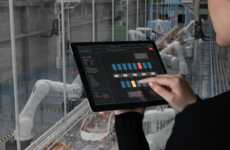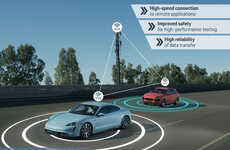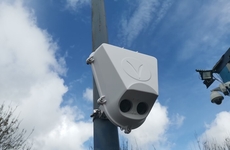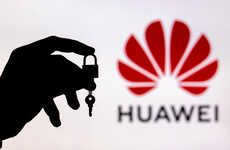
Sprint and Cisco's Wi-Fi Network Will Make Kansas a Connected City
Laura McQuarrie — October 16, 2015 — Tech
References: kansascity & fiercewireless
As part of its mission to create connected city infrastructure by rethinking urban services, Cisco teamed up with Sprint for a new intelligent Wi-Fi network in downtown Kansas City.
The new Wi-Fi network will be stationed near Sprint's headquarters, spanning a 2.2 mile region along a Kansas City streetcar line. As a key part of the new Smart+Connected City framework, this Wi-Fi network will do so much more than offer access to the Internet. The network will support digital maps, information kiosks, manage parking, traffic, lighting, as well as handle water and waste management. A subsidiary of Sprint, Pinsight Media+ will even make it possible for the network to offer advertising, e-commerce and analytics.
In order for this network need to anticipate some flexibility for future technologies, developers will be able to build off of existing framework and add new applications as needed over time.
The new Wi-Fi network will be stationed near Sprint's headquarters, spanning a 2.2 mile region along a Kansas City streetcar line. As a key part of the new Smart+Connected City framework, this Wi-Fi network will do so much more than offer access to the Internet. The network will support digital maps, information kiosks, manage parking, traffic, lighting, as well as handle water and waste management. A subsidiary of Sprint, Pinsight Media+ will even make it possible for the network to offer advertising, e-commerce and analytics.
In order for this network need to anticipate some flexibility for future technologies, developers will be able to build off of existing framework and add new applications as needed over time.
Trend Themes
1. Connected City Infrastructure - The development of intelligent Wi-Fi networks in urban areas creates opportunities for comprehensive and interconnected city services beyond basic internet access.
2. Smart+connected City Framework - The integration of digital maps, information kiosks, parking management, traffic control, and other services in urban areas allows for streamlined urban living and enhanced efficiency.
3. Future-proof Network Flexibility - By allowing developers to build off existing frameworks and add new applications over time, Wi-Fi networks can adapt to future technologies and stay relevant in an ever-evolving digital landscape.
Industry Implications
1. Urban Infrastructure - The development of intelligent Wi-Fi networks opens up opportunities for companies that specialize in creating and managing smart city infrastructure.
2. Advertising and Analytics - The integration of advertising, e-commerce, and analytics within intelligent Wi-Fi networks creates new avenues for companies to engage with consumers and gather data.
3. Technology Development - The need for future-proof network flexibility creates opportunities for technology companies to innovate and develop new applications that can be integrated into intelligent Wi-Fi networks.
3.4
Score
Popularity
Activity
Freshness























